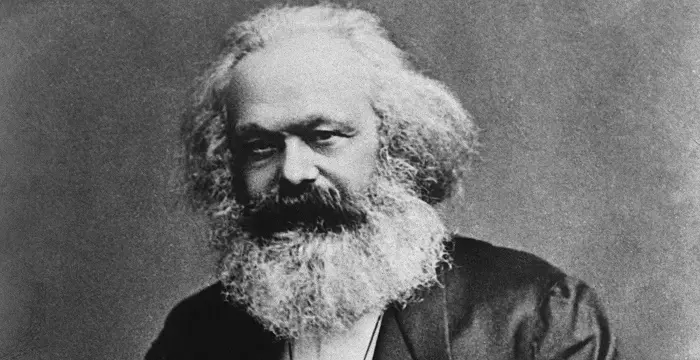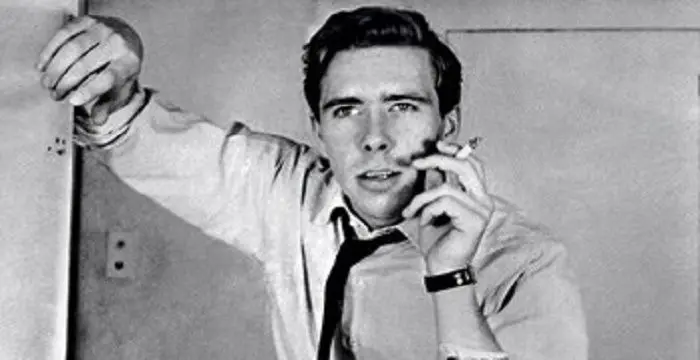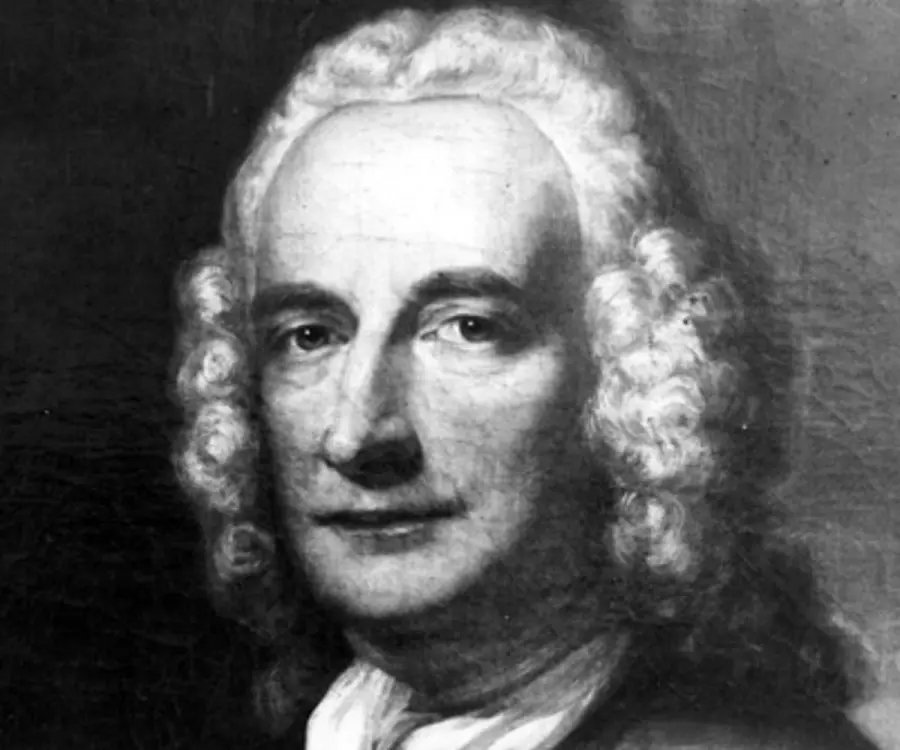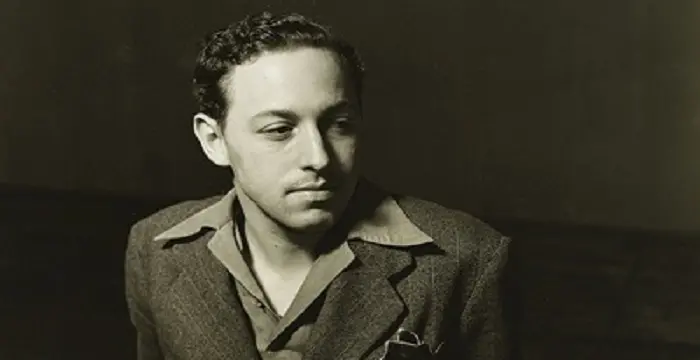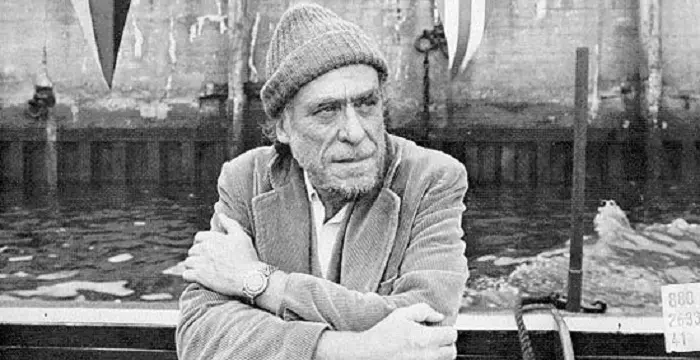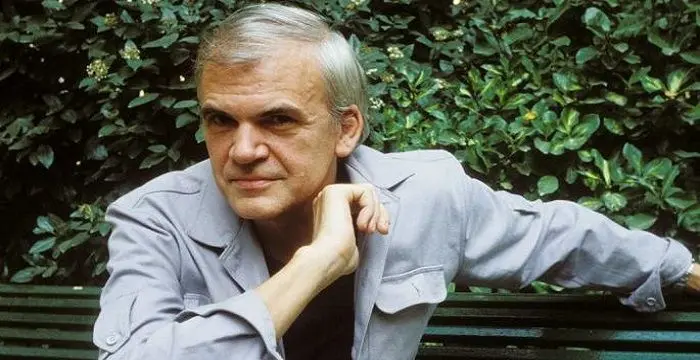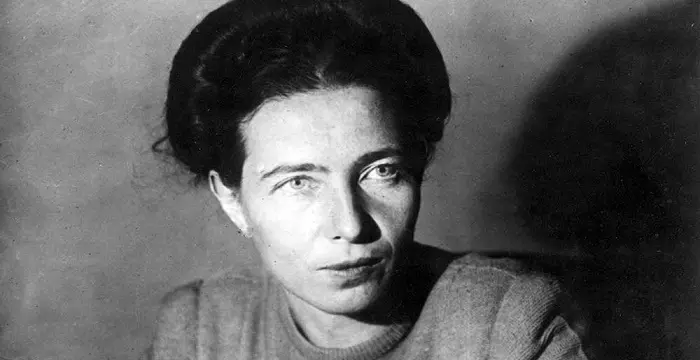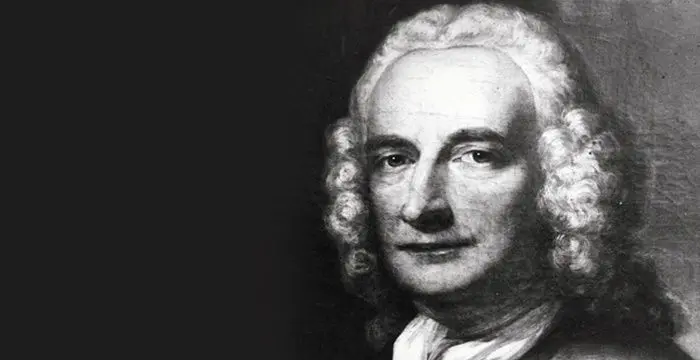
Henry Fielding - Eton College, Birthday and Childhood
Henry Fielding's Personal Details
Henry Fielding was an 18th century English writer best known as the author of the novel ‘Tom Jones.’ This biography of Henry Fielding provides detailed information about his childhood, life, achievements, works & timeline.
| Information | Detail |
|---|---|
| Birthday | April 22, 1707 |
| Died on | October 8, 1754 |
| Nationality | British |
| Famous | Eton College, Writers, Novelists |
| Siblings | John Fielding, Sarah Fielding |
| Known as | Fielding Henry, Fielding |
| Universities |
|
| Notable Alumnis |
|
| Birth Place | Sharpham |
| Gender | Male |
| Sun Sign | Taurus |
| Born in | Sharpham |
| Famous as | Writer |
| Died at Age | 47 |
// Famous Eton College
Karl Marx
Karl Marx was a Prussian-German philosopher, revolutionary, historian and socialist whose communist ideologies and works laid the foundation for ‘Marxism’. Explore this biography to learn more about his childhood, life achievements, works & timeline.
Antony Armstrong-Jones, 1st Earl of Snowdon
Antony Armstrong-Jones was a British photographer and film-maker. Check out this biography formore information on his childhood, family, personal life, etc.
Bear Grylls
Bear Grylls is an adventurer popularly known for his bizarre survival tactics in reality television series Man vs. Wild. This biography provides detailed information about his childhood, profile, career and timeline.
Henry Fielding's photo
Who is Henry Fielding?
Henry Fielding was an 18th century English writer best known as the author of the novel ‘Tom Jones.’ Well known for his earthy and satirical sense of humor, he penned several parodies beginning with the publication of ‘An Apology for the Life of Mrs. Shamela Andrews’. Even though this work was published anonymously, it is generally accepted that he was the author. He developed an interest in literature as a young man and went to Eton College where he studied classical authors. He aspired to be a playwright and finished his first play in 1728. He then moved to the University of Leiden in Holland to study law and classics but was not able to complete his studies because of financial constraints. Forced to abort his studies and return home, he began writing for the theater to earn his living. An independent minded outspoken young man, he wrote plays that were openly critical of the government of Prime Minister Sir Robert Walpole. However, the Theatrical Licensing Act of 1737 stifled the creative freedom of playwrights, forcing him to abandon his theatrical career. He embarked into a career in law and became a barrister. He continued to write and produced satirical works like ‘Tom Jones’ and ‘Joseph Andrews’ which made him quite popular.
// Famous Writers
Joyce Meyer
Joyce Meyer is a Christian author and speaker. This biography provides detailed information about her childhood, life, achievements, works & timeline
Temple Grandin
Temple Grandin is a well-known American writer, autistic activist and animal expert. This biography profiles her childhood, life, achievements, career and timeline
Tennessee Williams
Tennessee Williams was one of the greatest playwrights of the 20th century. This biography of Tennessee Williams provides detailed information about his childhood, life, achievements, works and timeline.
Childhood & Early Life
Henry Fielding was born on 22 April 1707, in Sharpham, Somerset, England, to Col. Edmund Fielding and his wife. His father had served under John Churchill, duke of Marlborough, an early 18th-century general, while his mother was the daughter of a judge of the Queen’s Bench. His mother died when Henry was around 11 and his father soon remarried.
Henry went to Eton College to study classics. It was there that he met George Lyttelton, who was later to be a statesman. During this time he began writing plays.
In 1728, he moved to the University of Leiden in Holland to study classics and law. However, financial problems forced him to abandon his studies and return home after a few months.
Career
On returning home he began writing for the theater, penning several plays during the 1730s. An outspoken young man, he bitterly criticized the government of Prime Minister Sir Robert Walpole in his plays. It is believed that the Theatrical Licensing Act of 1737 was passed in response to his activities.
The passage of the Act greatly restrained his creative freedom and he was no longer able to satirize political figures in his plays. Thus he left the theater and ventured into a career in law by becoming a barrister.
He never stopped writing though. He continued writing satires and also edited a thrice-weekly newspaper, the ‘Champion; or, British Mercury’, which ran from November 1739 to June 1741. He became a novelist entirely by chance.
In 1740 Samuel Richardson published his story ‘Pamela: or, Virtue Rewarded’, a story of a servant girl who resists her master’s efforts to seduce her and ultimately wins his heart by virtue of her morality. The book became a resounding success. Fielding, however, found the story offensive and proceeded to parody it by writing ‘An Apology for the Life of Mrs. Shamela Andrews’, satirizing Richardson’s prudish morality.
The work was published anonymously and Fielding never claimed credit for it. But it is generally accepted that he was the author based on the writing style. He wrote another novel, ‘Joseph Andrews’ in 1742, which is counted among the first true novels in the English language. The publication of this book marked Fielding's debut as a serious novelist.
The year 1743 saw the publication of ‘The History of the Life of Mr. Jonathan Wild the Great’. In this work he drew a parallel between Walpole and Jonathan Wild, the infamous gang leader and highwayman, comparing the Whig party in Parliament with a gang of thieves being run by Walpole.
By the mid-1740s he had gained much fame as a satirist, and he published ‘Tom Jones’ in 1749. A picaresque novel, it depicts the adventures of a roguish hero of low social class who lives in a corrupt society. The lengthy novel of 346,747 words was received with enthusiasm by the general public of the time, and is considered Fielding's greatest book.
During the 1740s, he was appointed justice of the peace for Westminster and then magistrate of Middlesex. Deeply committed to fighting crime, he collaborated with his younger half-brother John and helped to form the Bow Street Runners in 1749. The Bow Street Runners have been called London's first professional police force, and Fielding and John are credited to be two of the best magistrates in 18th-century London.
In January 1752, Fielding started a fortnightly periodical titled ‘The Covent-Garden Journal’, under the pseudonym of "Sir Alexander Drawcansir, Knt. Censor of Great Britain”. The same year he published a treatise ‘Examples of the interposition of Providence in the Detection and Punishment of Murder’.
Major Works
Henry Fielding’s best known work is ‘Tom Jones, a comic novel counted among the earliest English prose works describable as a novel. Divided into 18 smaller books, the novel though lengthy is highly organized. W. Somerset Maugham included it among the ten best novels of the world in his 1948 book ‘Great Novelists and Their Novels’.
Personal Life & Legacy
Henry Fielding married his first wife, Charlotte Craddock, in 1734. He loved her deeply and modeled the heroines of two of his novels on her. The marriage produced five children, of whom only one survived to adulthood. His wife died in 1744, plunging him into grief. Tragically, his lone surviving daughter by Charlotte too died after some years at the age of 23.
He became romantically involved with his wife’s maid Mary Daniel who became pregnant with his child. Their relationship culminated in marriage which produced five children. Unfortunately, three of the children died young.
Henry Fielding suffered from gout which worsened in the early 1750s. By 1752, he often had to use crutches or a wheelchair and his health declined rapidly. He travelled to Portugal hoping for a cure for his health problems in the summer of 1754 and died in Lisbon on 8 October 1754.
// Famous Novelists
Charles Bukowski
Charles Bukowski was a German-born American novelist, short story writer and poet. With this biography, learn in details about his childhood, life, works, career and timeline
Milan Kundera
Milan Kundera is a Czech-born French writer known for his erotic and political writings. This biography of Milan Kundera provides detailed information about his childhood, life, achievements, works & timeline.
Simone de Beauvoir
Simone de Beauvoir was an eminent French writer, intellectual, activist, and philosopher. This biography profiles her childhood, life, thoughts, achievements and timeline.
Henry Fielding biography timelines
- // 22nd Apr 1707Henry Fielding was born on 22 April 1707, in Sharpham, Somerset, England, to Col. Edmund Fielding and his wife. His father had served under John Churchill, duke of Marlborough, an early 18th-century general, while his mother was the daughter of a judge of the Queen’s Bench. His mother died when Henry was around 11 and his father soon remarried.
- // 1728In 1728, he moved to the University of Leiden in Holland to study classics and law. However, financial problems forced him to abandon his studies and return home after a few months.
- // 1734 To 1744Henry Fielding married his first wife, Charlotte Craddock, in 1734. He loved her deeply and modeled the heroines of two of his novels on her. The marriage produced five children, of whom only one survived to adulthood. His wife died in 1744, plunging him into grief. Tragically, his lone surviving daughter by Charlotte too died after some years at the age of 23.
- // 1737On returning home he began writing for the theater, penning several plays during the 1730s. An outspoken young man, he bitterly criticized the government of Prime Minister Sir Robert Walpole in his plays. It is believed that the Theatrical Licensing Act of 1737 was passed in response to his activities.
- // Nov 1739 To Jun 1741He never stopped writing though. He continued writing satires and also edited a thrice-weekly newspaper, the ‘Champion; or, British Mercury’, which ran from November 1739 to June 1741. He became a novelist entirely by chance.
- // 1740In 1740 Samuel Richardson published his story ‘Pamela: or, Virtue Rewarded’, a story of a servant girl who resists her master’s efforts to seduce her and ultimately wins his heart by virtue of her morality. The book became a resounding success. Fielding, however, found the story offensive and proceeded to parody it by writing ‘An Apology for the Life of Mrs. Shamela Andrews’, satirizing Richardson’s prudish morality.
- // 1742The work was published anonymously and Fielding never claimed credit for it. But it is generally accepted that he was the author based on the writing style. He wrote another novel, ‘Joseph Andrews’ in 1742, which is counted among the first true novels in the English language. The publication of this book marked Fielding's debut as a serious novelist.
- // 1743The year 1743 saw the publication of ‘The History of the Life of Mr. Jonathan Wild the Great’. In this work he drew a parallel between Walpole and Jonathan Wild, the infamous gang leader and highwayman, comparing the Whig party in Parliament with a gang of thieves being run by Walpole.
- // 1749By the mid-1740s he had gained much fame as a satirist, and he published ‘Tom Jones’ in 1749. A picaresque novel, it depicts the adventures of a roguish hero of low social class who lives in a corrupt society. The lengthy novel of 346,747 words was received with enthusiasm by the general public of the time, and is considered Fielding's greatest book.
- // 1749During the 1740s, he was appointed justice of the peace for Westminster and then magistrate of Middlesex. Deeply committed to fighting crime, he collaborated with his younger half-brother John and helped to form the Bow Street Runners in 1749. The Bow Street Runners have been called London's first professional police force, and Fielding and John are credited to be two of the best magistrates in 18th-century London.
- // Jan 1752In January 1752, Fielding started a fortnightly periodical titled ‘The Covent-Garden Journal’, under the pseudonym of "Sir Alexander Drawcansir, Knt. Censor of Great Britain”. The same year he published a treatise ‘Examples of the interposition of Providence in the Detection and Punishment of Murder’.
- // 8th Oct 1754Henry Fielding suffered from gout which worsened in the early 1750s. By 1752, he often had to use crutches or a wheelchair and his health declined rapidly. He travelled to Portugal hoping for a cure for his health problems in the summer of 1754 and died in Lisbon on 8 October 1754.
- // 1948Henry Fielding’s best known work is ‘Tom Jones, a comic novel counted among the earliest English prose works describable as a novel. Divided into 18 smaller books, the novel though lengthy is highly organized. W. Somerset Maugham included it among the ten best novels of the world in his 1948 book ‘Great Novelists and Their Novels’.
// Famous British peoples
Wentworth Miller
Wentworth Miller is an American actor and screenwriter who achieved recognition for his role in the TV series ‘Prison Break’.
Sophie Reade
Sophie Victoria Reade is a British model and reality show star. Let’s take a look at her family and personal life, including her age, birthday, boyfriends, and some interesting facts.
Josh Temple
Check out all that you wanted to know about Josh Temple (Slogoman), the famous British YouTube Personality; his birthday, his family and personal life, his girlfriends, fun trivia facts and more.
Yammy Xox
Check out all that you wanted to know about Yammy Xox, the famous British YouTube Personality; her birthday, her family and personal life, her boyfriends, fun trivia facts and more.
Grian
Grian is an English YouTube gamer and social media influencer. Check out this biography to know about his birthday, childhood, family life, achievements and fun facts about him.
Benjamin Atkinson
Benjamin Atkinson is the son of the world-renowned British actor and comedian, Rowan Atkinson. Check out this biography to know about his childhood, family, personal life, including his age, birthday, etc.
Henry Fielding's FAQ
What is Henry Fielding birthday?
Henry Fielding was born at 1707-04-22
When was Henry Fielding died?
Henry Fielding was died at 1754-10-08
Where was Henry Fielding died?
Henry Fielding was died in Lisbon
Which age was Henry Fielding died?
Henry Fielding was died at age 47
Where is Henry Fielding's birth place?
Henry Fielding was born in Sharpham
What is Henry Fielding nationalities?
Henry Fielding's nationalities is British
Who is Henry Fielding siblings?
Henry Fielding's siblings is John Fielding, Sarah Fielding
What was Henry Fielding universities?
Henry Fielding studied at Eton College, Eton College, 1728 - Leiden University
What was Henry Fielding notable alumnis?
Henry Fielding's notable alumnis is Eton College
What is Henry Fielding's sun sign?
Henry Fielding is Taurus
How famous is Henry Fielding?
Henry Fielding is famouse as Writer
